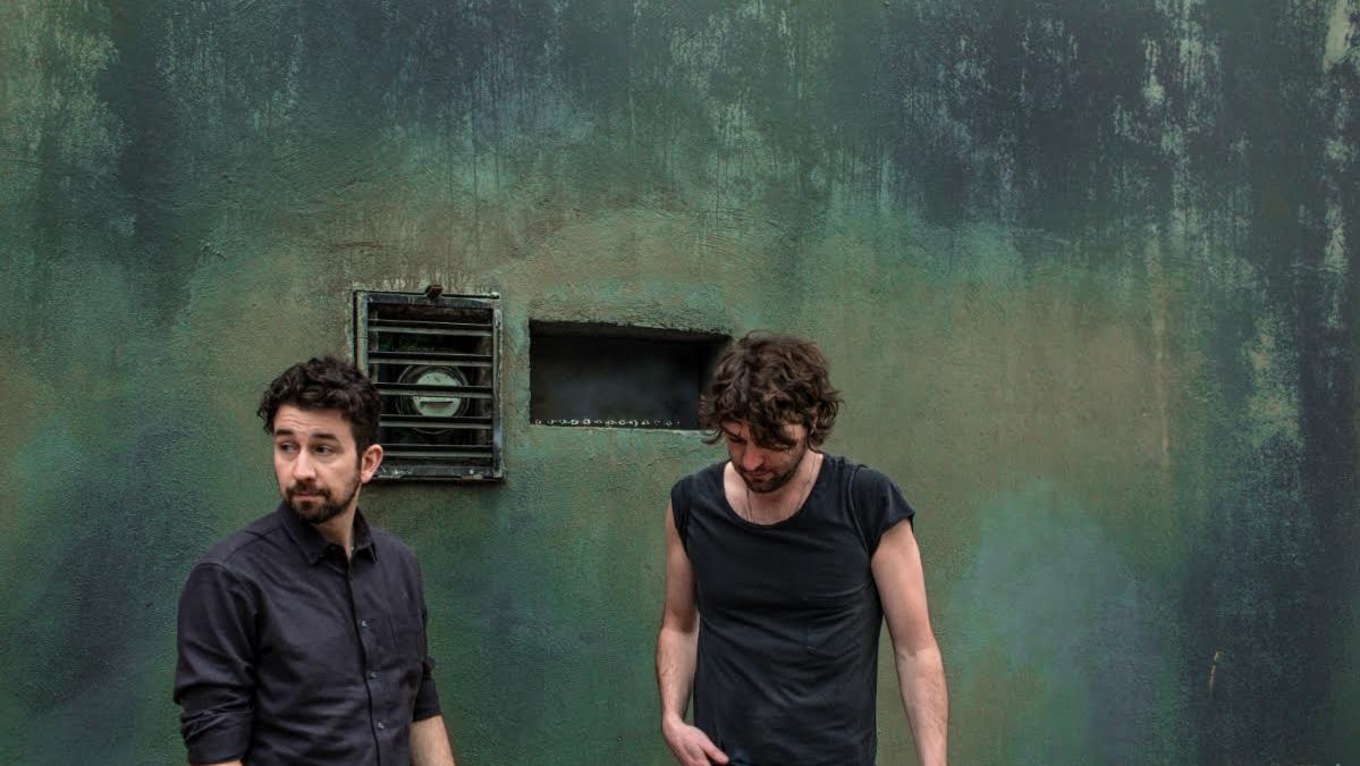Stream: Japandroids' Near to the Wild Heart of Life
Since banding together as Japandroids in 2006, Vancouver natives Brian King and David Prowse have projected the sort of hirsute, debaucherous garage-rock aesthetic that could be described as typically western Canadian. So it might come as some surprise that it took nearly a decade for the members themselves to come to terms with their own national identity.
The realisation arrived — naturally — while writing a song about America. Tasked with summing up the years between Japandroids’ breakthrough second record, Celebration Rock, and the present, King penned an anthemic number he titled “North East South West,” recalling highlights from the group’s seemingly endless tours, contrasted by the longing felt for his girlfriend throughout. But, while the song sounded right — galloping, life-affirming; nostalgic in the way that makes you want to relive every moment — upon reflection the guitarist and vocalist instinctively felt something was missing.
“[We would have been] a Canadian rock band that has a song all about the States,” he says, twisting his mouth in a way that implies embarrassment.

Putting pen to paper, King conceived a new verse for the song, recalling debaucherous nights in Dundas, Ont., and making a point of declaring that, “No matter how many times I fan the flame/ Canada always answers when I call her name.”
“Before this [album] I would have said being Canadian didn't feel like a large part of our identity,” King, who has relocated to Toronto but spends the majority if his downtime in Mexico City, admits. “When you grow up you don't realize how lucky you are and the uniqueness of being Canadian. The culture, the language, I appreciate a lot of subtleties of that now that I live in Mexico.”
“On some level, you might feel even more Canadian after you've spent as much time as you have in Mexico,” Prowse, who still lives in Vancouver and plays drums in the group, points out.
"We didn't want to make another Celebration Rock."
The quest for identity and concept of home are writ large on Japandroids’ new album, Near to the Wild Heart of Life, and inherently appear throughout the story of its “clandestine” recording in Vancouver, Montreal, Toronto, New Orleans, New York, Mexico City and Bridgeport, Conn., between 2014 and 2015.
Recuperating in the wake of Celebration Rock’s breakout success and the subsequent year-long world tour, the duo recalls deciding to throw everything out the window; to bluebrint a Japandroids 2.0 outside of the pressure of the internet and record labels.
To do this, they set two rules: “We didn't want to make another Celebration Rock and we didn't want to set any deadlines,” Prowse explains. “[Celebration Rock] was the best we could do with guitar, drums and vocals. I think the success of that album left us in this spot where maybe we can make something as good but it's hard to believe we're going to make something better following the same formula. That's a challenge but it's also quite freeing.”
Rather than going on “indefinite hiatus,” a decision was made to simply ghost the music industry. “We weren't gonna tell people we were recording, we weren't going to be tweeting about it or sending updates and we didn't book any shows," King explains. "And when it's done we'll go about letting the world know that we're still a band.”
In an effort to evolve, several ideas were bandied about. Friends suggested expanding the guitar-drum dynamic, adding more members to fill out their sound, like the Black Keys did (to great success). But King says the group dismissed the notion early on because “the White Stripes became the biggest band in the world without ever adding a member.”
What they landed on was trying to use the studio as a third member, experimenting with acoustic guitars, sequencers and drum machines to fill out their sound, adding a layer of sonic complexity to the face-melting riffage and bombastic percussion that dominated their previous recordings.
It may be a small concession, relatively speaking, but to King and Prowse, the process felt like a rejuvenation.

“We're not as dogmatic as we used to be,” Prowse says.
“This record is a first foray into a whole new world. It's our third record but it's our first in a certain sense” King explains. “Breaking our own rules made this record way more interesting. It's a very exciting time to be a little bit terrified.”
Results of this foray can be heard throughout the record, most notably on the album’s musical centerpiece, the seven-minute shoegaze rave-out “Arc of Bar,” and the acoustic strums of closer "In a Body Like a Grave." But lest fans worry the lean, mean, bombastic rock machine has gone all Emerson Lake & Palmer, fret not: there’s more than enough fist-pump inducing moments in the album’s titular, opening track alone to keep the celebration going long past Canada’s sesquicentennial.
"Breaking our own rules made this record way more interesting."
A decade and three albums into its career, Japandroids, the group who rolled out of the Vancouver haze as the last great party band, have emerged not only as an evolving musical entity, but as forebearers for a new generation of guitar rockers hoping to make the celebration last a little longer.
“Ten years ago we were mostly music fans, playing was only a tiny part of what music was to us,” Prowse says.
“At the 10-year point you realize that you're actually that to other people,” King jumps in, finishing his bandmate's sentence. “It's a pretty crazy trip.”
More to explore:
First Play: Japandroids' Near to the Wild Heart of Life
Japandroids detail first album in 5 years, Near to the Wild Heart of Life

